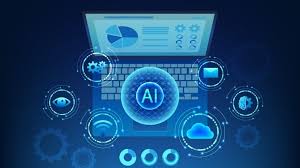June 2025 – The global job landscape is undergoing one of its most significant transformations in decades. Driven by the continued rise of remote work and rapid developments in artificial intelligence (AI), businesses and workers alike are adjusting to a new era of digital employment.
Once considered a temporary response to the pandemic, remote work has now become a permanent fixture in many industries. Simultaneously, AI is moving from back-end automation to front-line productivity, reshaping roles and redefining how work is done.
Remote Work is Here to Stay
According to a recent global survey by TechWork Insights, over 64% of companies now offer some form of permanent remote or hybrid work option. Flexibility, once seen as a perk, has become an expectation for job seekers — especially in tech, marketing, and finance sectors.
Companies report reduced overhead costs, wider talent pools, and increased employee satisfaction. However, challenges remain, including managing productivity, maintaining culture, and addressing the “digital burnout” many remote workers experience.
AI Is Creating and Replacing Jobs — At the Same Time
Meanwhile, artificial intelligence continues to play a dual role in the job market. On one hand, AI is automating tasks in industries like customer service, logistics, and even content creation. On the other, it is creating demand for new roles — such as prompt engineers, AI ethics officers, and data governance specialists.
“The workforce isn’t shrinking, it’s shifting,” said Dr. Lena Morales, a labor market analyst at FutureWork Global. “Jobs won’t disappear overnight, but their requirements will change dramatically. Adaptability and digital literacy are becoming core skills across all professions.”
Governments and Institutions Respond
In response to the rapidly changing work environment, several governments are investing in reskilling programs. The European Union recently announced a €2 billion fund dedicated to digital education and AI training for small business employees. Similarly, in the U.S., community colleges and online platforms are partnering to offer accelerated courses in AI, cybersecurity, and remote team management.
What This Means for Job Seekers and Businesses
For professionals, staying competitive means embracing lifelong learning, especially in tech-driven fields. For employers, the shift demands more than remote policies — it calls for a rethinking of collaboration, performance tracking, and team dynamics.
As work becomes more digitized and decentralized, companies that prioritize human adaptability alongside technological innovation are expected to lead the way.
Conclusion
The global job market is no longer defined by office walls or traditional job titles. As remote work and AI continue to converge, they are rewriting the rules of employment. The future belongs not just to the most qualified — but to the most adaptable.

